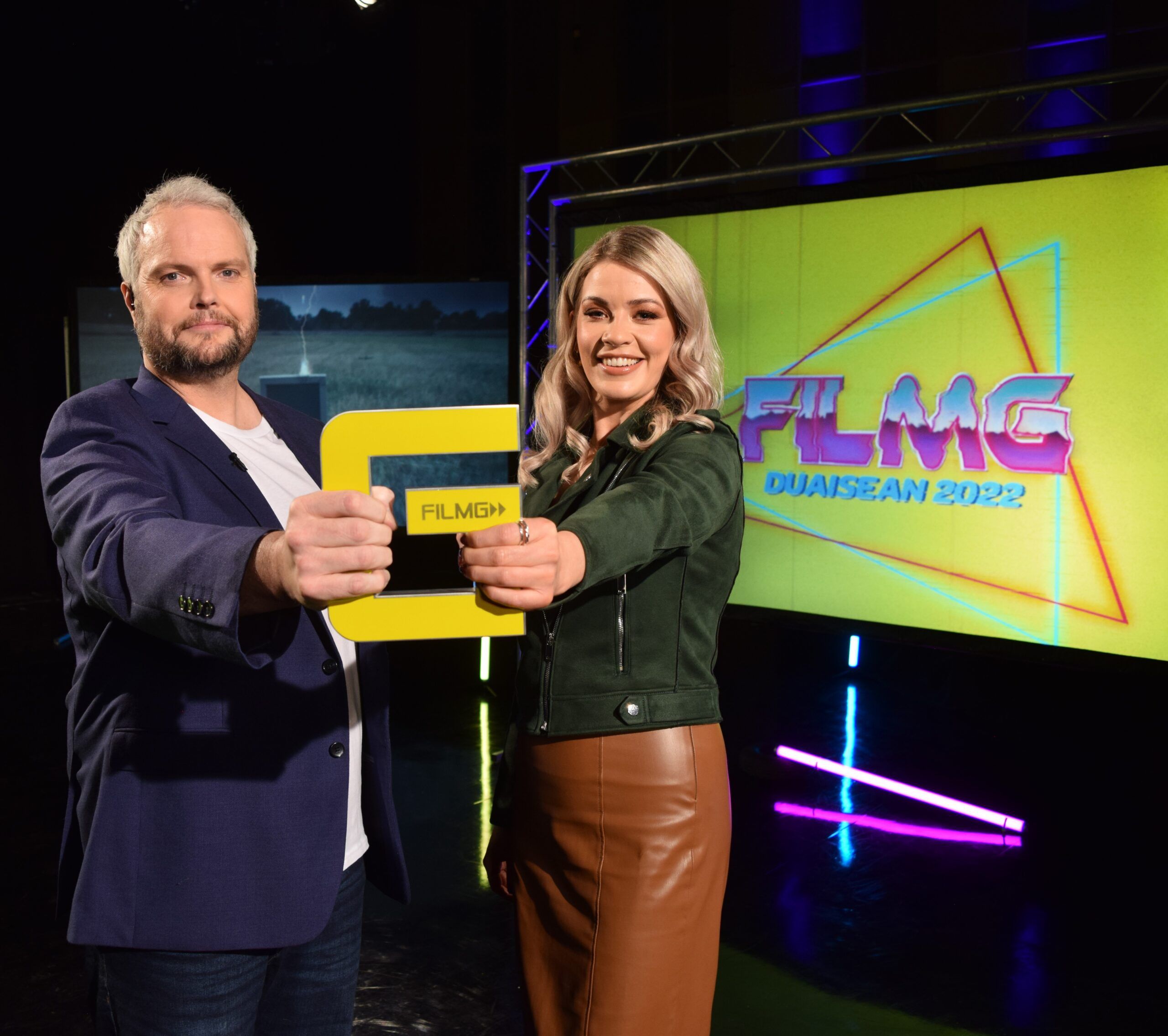 The winners of this year’s prestigious Gaelic short film competition FilmG 2022 have been announced tonight (Friday, February 25) in a special awards ceremony on BBC ALBA.
The winners of this year’s prestigious Gaelic short film competition FilmG 2022 have been announced tonight (Friday, February 25) in a special awards ceremony on BBC ALBA.
Many of the winners across the 17 prize categories were brought into the FilmG studio by video link to accept their award and chat with programme hosts and competition stalwarts Fiona MacKenzie and Niall Iain MacDonald.
The specially created awards programme will be shown on BBC ALBA at 9pm tonight (Friday, February 25) and is available to watch on the BBC iPlayer for 30 days afterwards.
Films followed this year’s competition theme Lorg, which means search, find or trace, and with over 90 filmmakers attempting to find the winning formula, the judges had a tough job whittling down the entries over multiple days.
Parker Dawes (14), a pupil at Ardnamurchan High School in West Lochaber, scooped three awards – Best Young Filmmaker, Best Film Fluent Speakers and Best Production, for his slapstick spy thriller Spies-R-Us.
Parker said: “We chose the spy topic because it was opposite to the film we made last year which didn’t win any prizes.
“We were interested to see if an action film could get different results – and it worked! I created a storyboard and we had crash mats so everything was well planned.
“I’ve always loved filmmaking and I’ve always looked up to FilmG . I’m really happy to get these awards because my friends and I were so sad when we didn’t win last year. It was great to be on that podium as a winner.”
An animation by Alina Brust from Edinburgh won ‘Best Film’ in the Open Category, the first time an animation has won this prize in FilmG.
‘An Taigh Solais’ follows a shepherd who is trying to find a lost sheep and has to shelter with her flock in an abandoned lighthouse to escape a storm. Due to the pandemic Alina had no access to university facilities so she made the entire film in her bedroom.
Alina (23) said: “I’m inspired by the Scottish landscape and coastline, especially the lighthouse and the cliffs around St. Abbs, one of my favourite places. And a lighthouse is a perfect setting for a weird and spooky story.
“Making this film was a great opportunity to combine my two passions of art and languages.
“I’m so grateful that all my hard work has paid off – as a Gaelic learner it feels like such a special achievement for me.”
Scooping the prize for Best Production (Under 12), Coignear air Chall (5 Lost Souls) by Sandbank Primary School in Dunoon follows five school friends as they take a spooky journey to one of the town’s historic landmarks.
A film about hillwalking and scrambling as a way to get a new perspective on the world from beyond the cold, dark glens and high above the clouds, ‘Thar Nan Sgòth – Beinn Eighe’ (Above the Clouds – Beinn Eighe) by Anndra Cuimeanach from Gairloch secured the prize for Best Documentary (12-17).
In the Open category a short documentary called ‘A’ Mhuir’ (The Sea) about wild swimming by the students at Sabhal Mòr Ostaig in the Isle of Skye who take part in the sport, has picked up two separate awards, Film Duthchais and Best Director (Anna Garvin).
Emily Murray (21), from Lewis, accepted the FilmG award on behalf of the class.
She said: “Taking part in FilmG was a good opportunity to practice the skills we had learned in class, such as camera, sound and editing.”
Anna Garvin (23) from Oban, who is studying Gaelic in Media at Sabhal Mòr Ostaig in Skye, said: “I feel very honoured to have won this. It was my first time directing and I learnt so much about the skills needed to direct from working on this film.
“Entering FilmG was a great opportunity to use all the technical and production skills we had learnt so far to create a film that would be shown to a public audience.”
‘Am Buaile Dubh’ which takes a look around Am Buaile Dubh on the outskirts of Inverness, has secured the Best Performance award for the film’s producer and narrator, Eòghan Stiùbhart.
Eòghan (40), from Inverness, is a Gaelic teacher with over 5k followers on Instagram for his Scottish Gaelic learning videos. He’s also an advocate for men’s mental health.
He said: “I went to Am Buaile Dubh a lot through lockdown, it’s a great place to be outdoors and get exercise. It allows me to be in a little world of my own and helps my mental health.
“For this film I wrote a monologue about what the place means to me and paired this with my own and old images and maps to illuminate the place.
“Winning this award was a surprise and honour, it was really cool to win the big metal G.”
And ‘Eilean Lois’ (Lois’s Island) by Somhairle MacIain from Kirkintilloch, East Dunbartonshire, which follows him and his girlfriend, Lois, as they cycled the Hebridean Way in the summer and he teaches her to speak Gaelic on the trip won them the award for Best Student Film.
Former Bishopbriggs Academy pupil, Sorley (19), who is studying Gaelic Media at Sabhal Mòr Ostaig, Skye, said: “I entered FilmG because I wanted to showcase a film that I had made myself while I was still on my course and had access to all the editing equipment and software.
“I’m planning on putting the prize money towards a camera of my own so I can continue to make films after my course finishes.”
Debbie Mackay, Project Manager at CGS who deliver the project said: “It was another great year for entries, and we were especially impressed by the high level of storytelling and filmmaking skills amongst our youth categories. As the competition continues to grow, we see filmmakers push themselves to a higher standard year after year. It’s a privilege to be a part of the project.
Iseabail Mactaggart, Director of Multi-platform Content at MG ALBA said: “FilmG has always been so important to Gaelic media as a whole and also to the individual filmmakers and groups who take part year after year.
“Seeing the talent coming through the ranks and refining their craft in order to pick up one of the coveted prizes is gratifying for all involved in Gaelic media and testament to our ambition to continue to nurture an unrivalled Gaelic-speaking talent base both in front of, and behind the camera for years to come.”
All films from this year’s competition are available to watch on the FilmG website: www.filmg.co.uk
BBC ALBA productions have been recognised at the Royal Television Society Scotland’s annual awards ceremony this week, after securing nominations across the festival categories.
Eòrpa, BBC ALBA’s flagship European current affairs programme secured an award in the News and Current Affairs for its enlightening instalment examining the Highlands’ involvement in the slave trade.
Produced by BBC Scotland Productions, the programme brought historical testimonies to light, and helped to unveil some of the realities around Scotland’s involvement in the Atlantic slave trade.
Eòrpa presenter, journalist & historian, Ruairidh MacIver, said: “This programme was a team effort and I’m very thankful to RTS Scotland for recognising our work in this way. I’d like to thank the historians, such as David Alston and Iain Mackinnon, who were so generous with their time and research. Particular thanks to Graham Campbell, Karrie Prescott, Jack Shehata and Philomena de Lima, who helped us understand the impact the legacy slavery still has today.”
Also recognised by the Royal Television Society was purpleTV’s sports documentary Na Boireannaich a Thog Glasgow City/The Women Who Built Glasgow City, looking at the story behind the founding and early success of Glasgow City FC.
Margot McCuaig, Director at purpleTV said “I am utterly thrilled that The Women Who Built Glasgow City has secured this award. Whilst it’s personally rewarding, it is also an important message affirming that women’s stories matter.
Women’s voices have been marginalised for too long and this documentary, telling the remarkable story of Laura Montgomery and Cas Stewart, is evidence of the central role women in sport have played, and continue to play, in Scottish culture and society. It is an absolute privilege to have amplified their voices for BBC ALBA audiences.”
BBC ALBA Head of Service, Margaret Mary Murray, said: “It’s testament to the consistent high quality of programming created by BBC ALBA’s producers that six entries from six companies were nominated for RTS Scotland Awards this year.
“We are immensely proud of them all but are delighted for the Eòrpa and PurpleTV teams who won the news & current affairs and sport categories with compelling and inspirational programmes. Our congratulations also go to all of the RTS Scotland 2021 nominees and winners.”
 Scotland will be competing for the last remaining place at New Zealand Women’s Rugby World Cup as they face off against either Colombia or Kazakhstan at The Sevens Stadium, Dubai on February 25th.
Scotland will be competing for the last remaining place at New Zealand Women’s Rugby World Cup as they face off against either Colombia or Kazakhstan at The Sevens Stadium, Dubai on February 25th.
The Scotland side’s opponents will be confirmed on the 19th of February after Colombia and Kazakhstan battle it out to get through to this final crucial qualifier.
Full match coverage and commentary from Hugh Dan Maclennan will be on BBC ALBA from 15.00 on Friday 25 February.
For more info about the game, squad and wider tournament, see https://bit.ly/34ew7qT
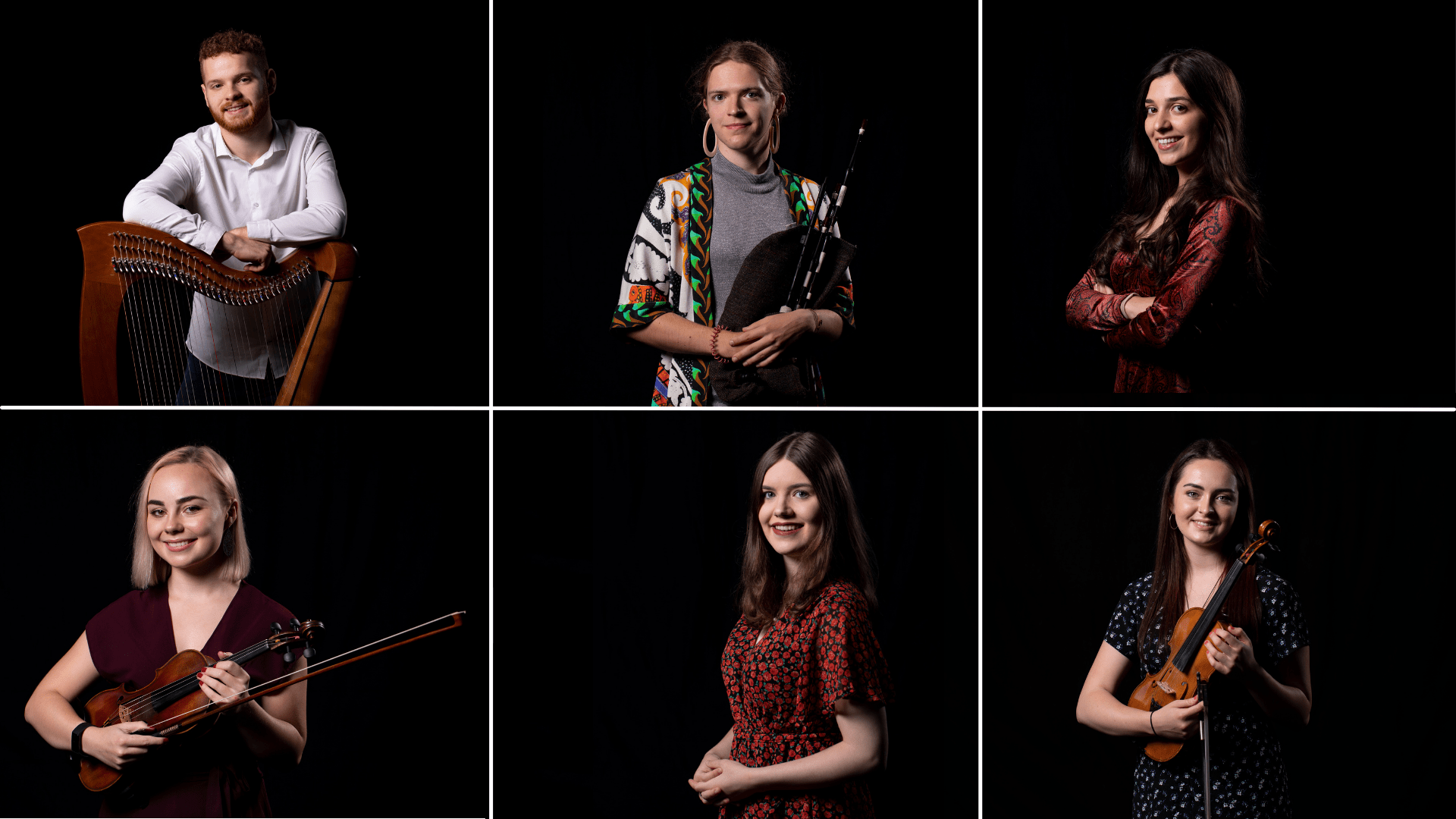 The final of BBC Radio Scotland’s Young Traditional Musician of the Year 2022 will be broadcast on BBC ALBA & BBC Radio Scotland this Sunday, February 6.
The final of BBC Radio Scotland’s Young Traditional Musician of the Year 2022 will be broadcast on BBC ALBA & BBC Radio Scotland this Sunday, February 6.
Gaelic broadcaster Joy Dunlop and Travelling Folk’s Bruce MacGregor introduce coverage from the finals, with six talented young musicians competing for the prestigious title, as part of this year’s Celtic Connections festival.
Hailing from across the country, with a diverse background of musical styles and influences, the finalists are:
• Breanna Wilson, Fiddle, Glasgow
• Malachy Arnold, Clarsach, Glasgow
• Eryn Rae, Fiddle, Borders
• Saffron Hanvidge, Gaelic Song, Inverness
• Malin Lewis, Highland Bagpipe, Skye
• Sophie Joint, Piano, Glasgow
Margaret Cameron, Commissioning Editor and Head of Creative Partnerships at MG ALBA said: “The wealth of traditional music showcased on BBC ALBA every year is one of the things that makes it stand out as a such a valuable cultural asset, showcasing the best in the business and supporting our creative musicians in bringing their voices to audiences across the country, and the BBC Radio Scotland Young Traditional Musician of the Year contest is no different, bringing these up and coming stars to listeners and watchers looking for the cream of the crop in the traditional music scene.
“Our broadcast partnership with BBC Radio Scotland continues to be fruitful as we bring these finals to BBC ALBA for the third year in a row.”
Simon Thoumire, Creative Director at Hands Up For Trad, who organise the competition, said: “It’s so exciting to have the BBC Radio Scotland Young Traditional Musician Award Finals broadcast live on BBC ALBA. this gives an opportunity for a whole new audience to hear the wealth of young talent that is in Scottish Trad music.”
BBC Radio Scotland Young Traditional Musician of the Year will be broadcast on both BBC ALBA and BBC Radio Scotland from 17.00 Sunday 6 February and available again on the BBC iPlayer and BBC Sounds afterwards.
Visit www.bbc.co.uk/youngtrad for more about the competition.
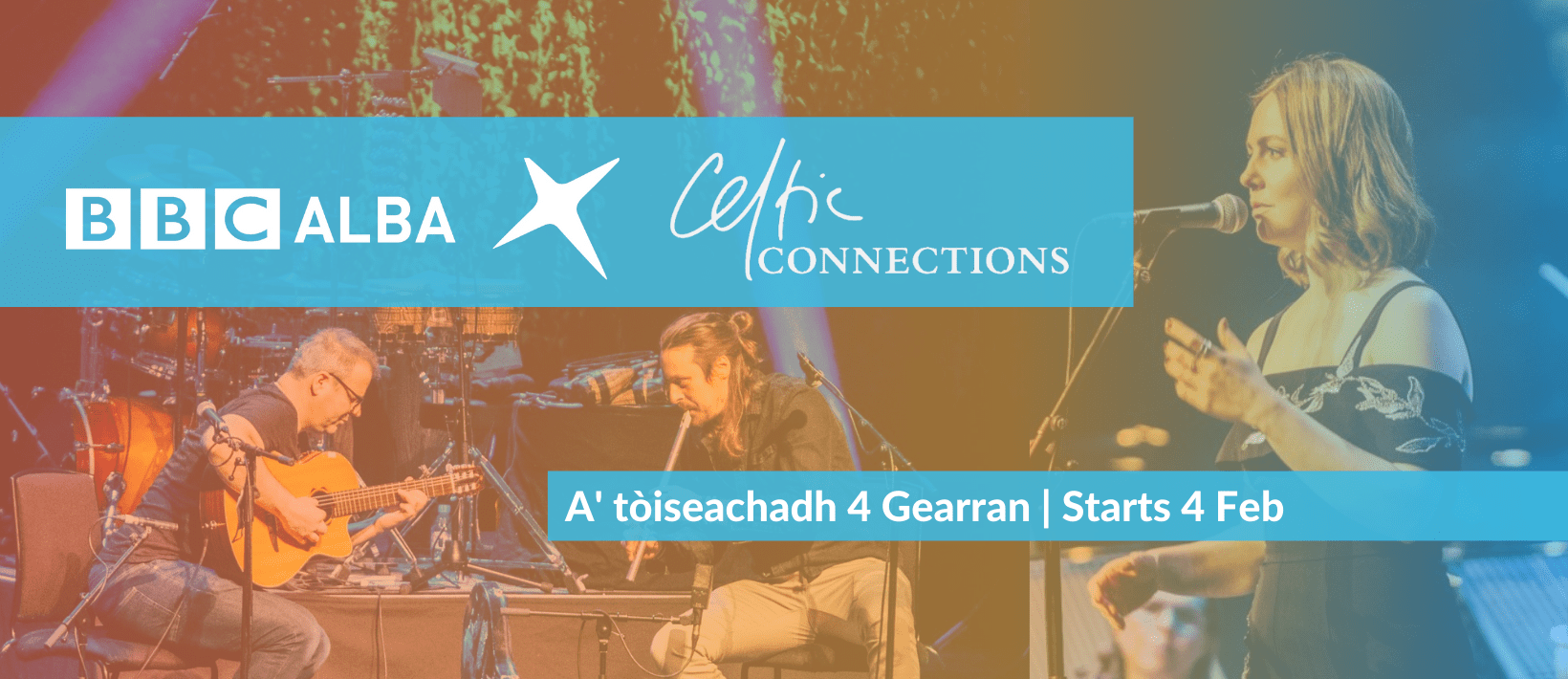 Scotland’s premiere winter music festival Celtic Connections has once again partnered with MG ALBA to bring a selection of high-end performances and programming to BBC ALBA this February.
Scotland’s premiere winter music festival Celtic Connections has once again partnered with MG ALBA to bring a selection of high-end performances and programming to BBC ALBA this February.
Coverage kicks off with Cuirm @ Celtic Connections from 9pm Friday 4 and Saturday 5 February, with Gaelic singer Mischa MacPherson bringing festival highlights from acts as diverse as virtuoso multi-instrumentalists Tim Edey & Ross Ainslie, Scots singer Fiona Hunter and MG ALBA Gaelic Singer of the Year Kim Carnie.
Also featuring in Cuirm @ Celtic Connections will be Shetlandic fiddle maestros Fiddler’s Bid, renowned West Highland fiddler and Gaelic singer Megan Henderson (whose debut album Pilgrim Souls is hot off the press) and Lauren McColl and Rachel Newton’s moving tribute to women executed in the historic Scottish witch trials.
BBC ALBA viewers can also tune in to Seirm | Celtic Connections to enjoy a stellar international lineup of the festival’s best artists and familiar faces, over 6 hour-long programmes from 12 Feb onwards.
Presented by stalwart of the traditional music scene in Scotland Mary Ann Kennedy, Seirm | Celtic Connections promises performances from acts as diverse as The Henry Girls, Trail West, The Trials of Cato, and Blue Rose Code.
Fresh from her Transatlantic Sessions gigs, US singer Leyla McCalla brings a mix of Creole, Hiatian and Cajun influences in Seirm | Celtic Connections, and audiences can also expect a masterclass in folk fluting from Brian Finnegan of Flook fame.
Summertime promises additional highlights from this year’s extended festival schedule; a recording from Gaelic electronica band Niteworks’ concert backed by the SSO will feature on BBC ALBA, as well as a landmark performance from Capercaillie, who spearheaded the revival of traditional Celtic and played an integral part of Celtic Connections’ establishment and success. Capercaillie will also be backed by the SSO.
Margaret Cameron, Commissioning Editor and Head of Creative Partnerships at MG ALBA said: “It’s a delight to be bringing Celtic Connections to BBC ALBA once again, especially in such challenging circumstances. We’re so grateful for the co-operation and support of the festival and the artists in helping us to bring such special performances to those at home, and as always, the line-up does not disappoint!”
Donald Shaw, Creative Director, Celtic Connections said: “It’s wonderful to be continuing our long-standing partnership with BBC ALBA for Celtic Connections 2022. We’re grateful to the team at MG ALBA for their ongoing support. BBC ALBA audiences will be able to tune in to watch an exciting array of talent and performances curated from this year’s festival, representing some of the best and most promising artists who continue to grace the Celtic Connections stage.”
BBC ALBA’s Celtic Connections coverage begins on Friday 4 Feb – for more info and the most up-to-date schedules, see bbc.co.uk/alba for more.
All BBC ALBA programming will be available on the BBC iPlayer for 30 days after broadcast.
See BBC ALBA’s social media for more info.
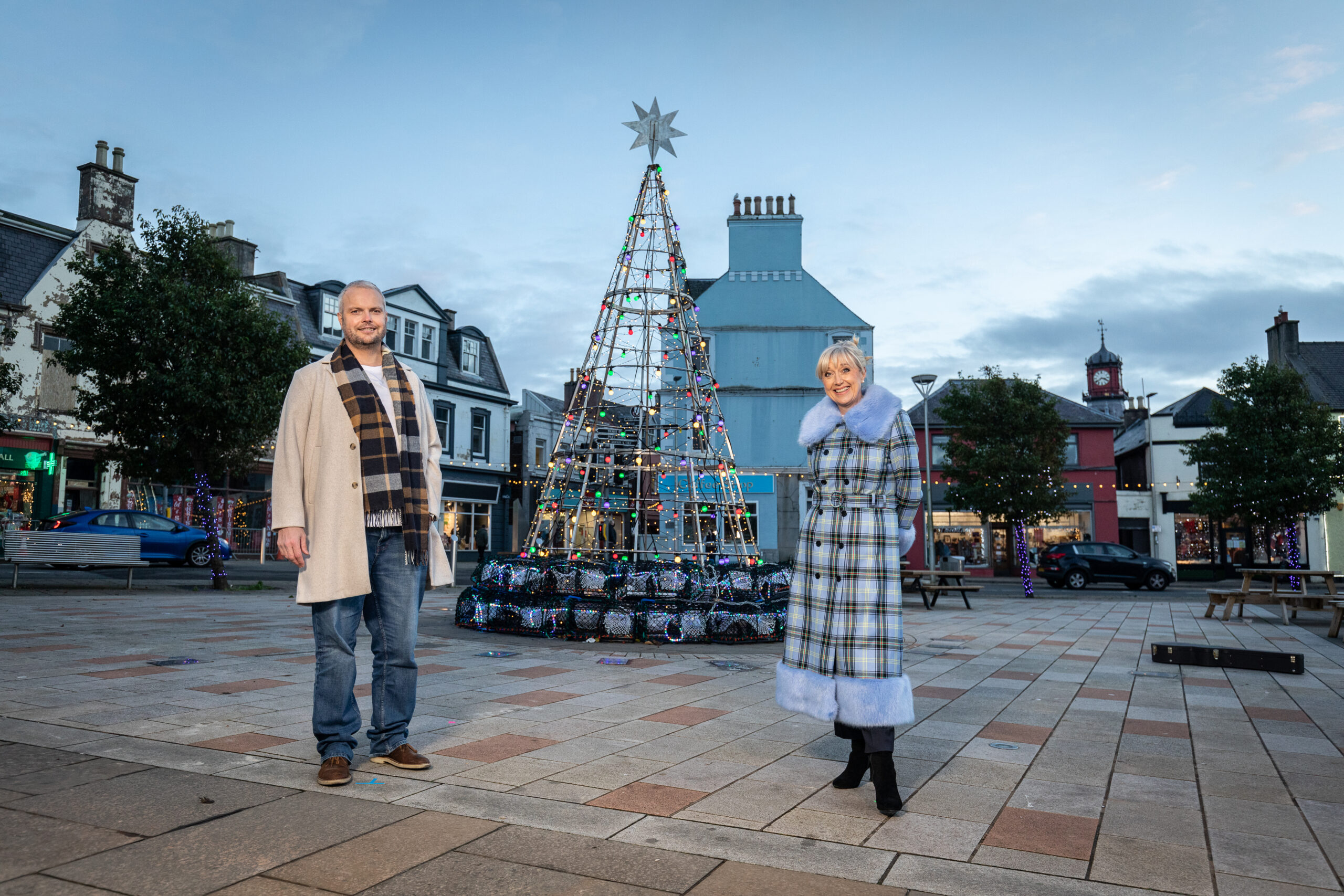 Join Cathy MacDonald and Niall Iain MacDonald for the best cèilidh of the year – BBC ALBA’s Cèilidh na Bliadhn’ Ùire 2021.
Join Cathy MacDonald and Niall Iain MacDonald for the best cèilidh of the year – BBC ALBA’s Cèilidh na Bliadhn’ Ùire 2021.
With music from the Glenfinnan Ceilidh Band, and a fabulous array of special guests, there’s no better way to bring in the bells – wherever you are in the world.
Featuring festive and fun performances from Peat & Diesel, the Stornoway Youth Pipe Band, Iain Spanish Mackay and some of Lewis’ finest choral singers, viewers are in for a treat this New Year.
There’s plenty more on offer on BBC ALBA this Hogmanay too; at 9pm, viewers can gain a whole new perspective on the wonder of the World heritage site of St Kilda, in the company of modern-day ‘mermaid’ Kate Macleod in Mermaid Tales – St Kilda.
BBC ALBA will also bring a twist to festive culinary traditions with The Hebridean Baker joining the Kitchen Coves to prepare a feast like no other this new year’s eve in Seòid Lang Syne.
Coinneach Macleod – better known as The Hebridean Baker, TikTok star & cookbook writer – joins Uisdean and Ruairidh in the kitchen to whip up some whisky cocktails to go along with the festive fare.
Once glasses are topped up with the coves’ cocktails, sit back and relax with brand new BBC ALBA comedy show OMC!, featuring the funniest of faces and silliest of sketches to keep you entertained this Hogmanay.
From lovelorn posties to tasteless TV chefs, OMC! brings some kooky characters to BBC ALBA’s Hogmanay slate.
Mermaid Tales – St Kilda will be broadcast at 21.00, followed by Seòid Lang Syne at 22.00, and OMC! at 23.00, with Ceilidh na Bliadhn’ Ùire taking us into the new year from 23.30.
Cèilidh na Bliadhn’ Ùire will be available to watch worldwide, streamed live here.
All programming will be available for 30 days after broadcast on the BBC iPlayer.
For more information, check out BBC ALBA’s social media.
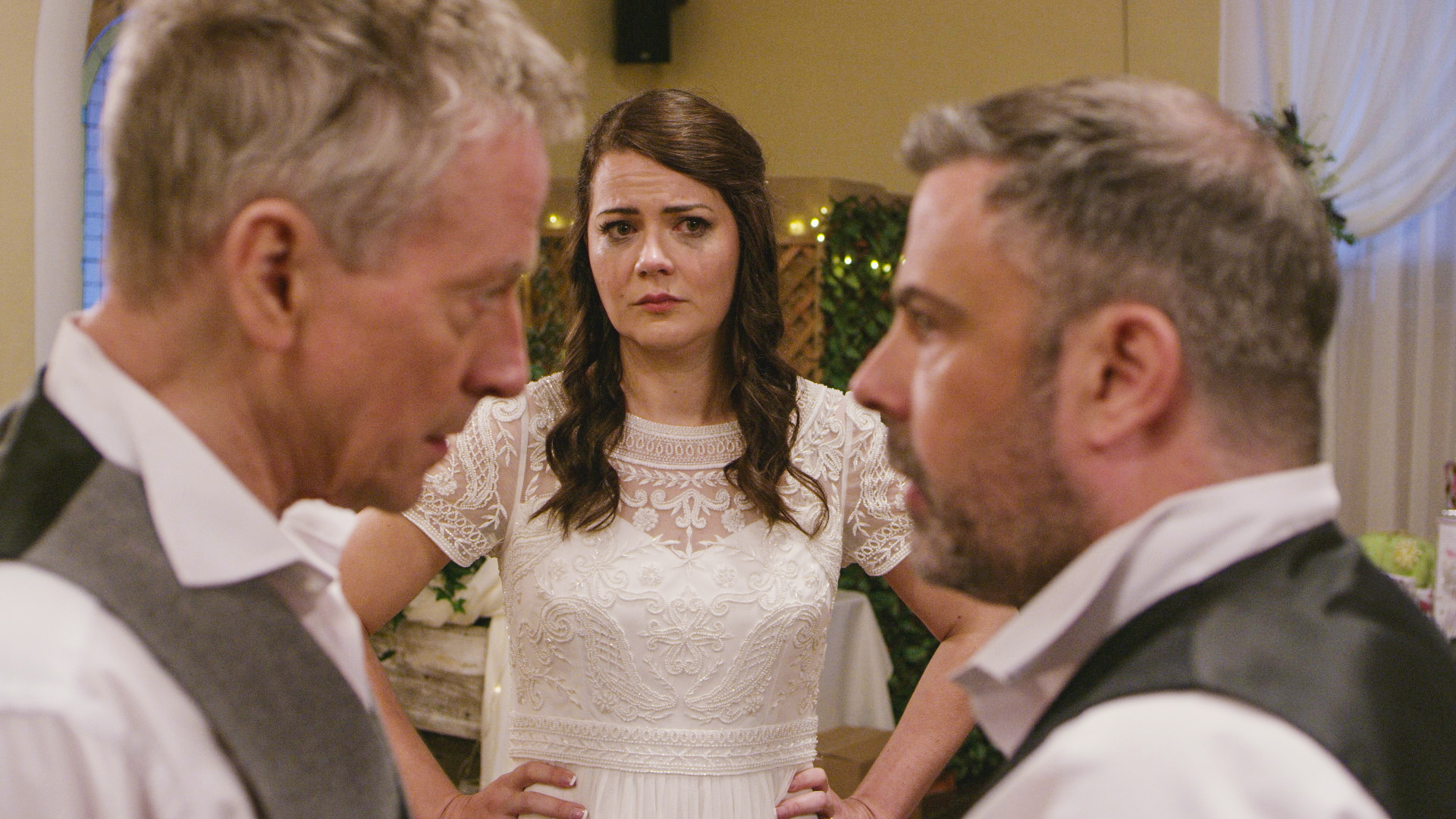 BBC ALBA’s popular drama Bannan reaches a powerful and moving climax during the festive season after over 40 episodes.
BBC ALBA’s popular drama Bannan reaches a powerful and moving climax during the festive season after over 40 episodes.
This Christmas sees the launch of the final series of Bannan – the eighth.
At its very heart are truth, love and family – and the big question: How strong are the ties that bind?
Since its heady launch at the Edinburgh Film Festival seven years ago in 2014, Bannan has entertained audiences in Scotland and around the world with its unique blend of Gaelic storytelling and film-making.
Produced and filmed in the Isle of Skye by Young Films and its team of Gaelic writers, directors, producers and performers, Bannan has broken the mould of television drama in its innovative use of the language and landscape of the Gaidhealtachd.
Each year has seen the emergence of exciting new talent both behind and in front of the camera, and successive series have tackled a range of contemporary issues in Scottish life through the prism of island life and Gaelic.
Lead director and writer Mairead Hamilton started as a runner on the pilot, writers Laura MacLennan and Tormod MacLeod began as production trainees, and assistant director Sarah Jane Campbell stepped up to become producer.
What exactly happened between Ceitidh and Lucas? That’s what everyone in Camus wants to know after Ceitidh’s devastating accusations at Màiri and Lucas’ wedding – and everyone has their own opinion. We know that Lucas is guilty of grooming 15-year-old Ceitidh online, but will anyone believe her? Will Lucas be unmasked or will he get away with his crimes against this vulnerable girl?
Màiri is desperate to know the truth, but the more she hears the less she knows what to believe. Meanwhile Ceitidh begins to question herself – an act that may destroy her and only helps Lucas – a manipulative and calculating man desperate to get Màiri and the community on his side.
Danger, uncertainty and heartbreak is everywhere in this new series: we watch Donna and Finlay draw deeply on their love for each other in the face of Donna’s illness, and Tormod discovers Iseabail’s dark secret with devastating consequences.
Executive Producer Chris Young, best known for producing the hit TV show and film The Inbetweeners, said: “I dreamed of creating a Gaelic TV drama in which there was nothing remarkable about the experience other than the drama itself. And I feel that with the cast and crew, producer Sarah Jane and directors, and writers have pulled it off. It’s a huge achievement. I was thinking back to our beginning and I’m struck by how far we have travelled.
“The journey warrants a celebration because it’s an astonishing legacy of new Gaelic and Scottish talent.
“When BBC ALBA commissioned the first three pilot episodes with support from Creative Scotland no-one imagined that the show would run for a further 40 episodes, and we’d like to thank and to pay tribute to their vision and confidence in Young Films.
“Looking ahead with a Channel 4 comedy pilot in production in January, and a new feature film funded by BBC Film, BFI and Screen Scotland in post-production due for summer release, and the Young Films Foundation Skye Screenwriting Programme in its third year, I’m confident that Skye will continue to offer the perfect TV and Film hub for new productions, whether in English or in Gaelic.”
Margaret Mary Murray, BBC ALBA’s Head of Service said: “Bannan has been a huge hit with the audience who have followed the fortunes of the residents of Camus avidly over the past 8 series’. In addition to providing thrilling entertainment, Bannan has also inspired a new generation of actors, writers, directors and technical creative crew along the way. The team at Young Films have delivered successively impressive series culminating in a gripping and moving finale.”
Bannan Series 8 airs on BBC ALBA on Monday, December 27, Tuesday, December 28 and Thursday, December 30. And consecutively on New Year’s Day, all at 10pm.
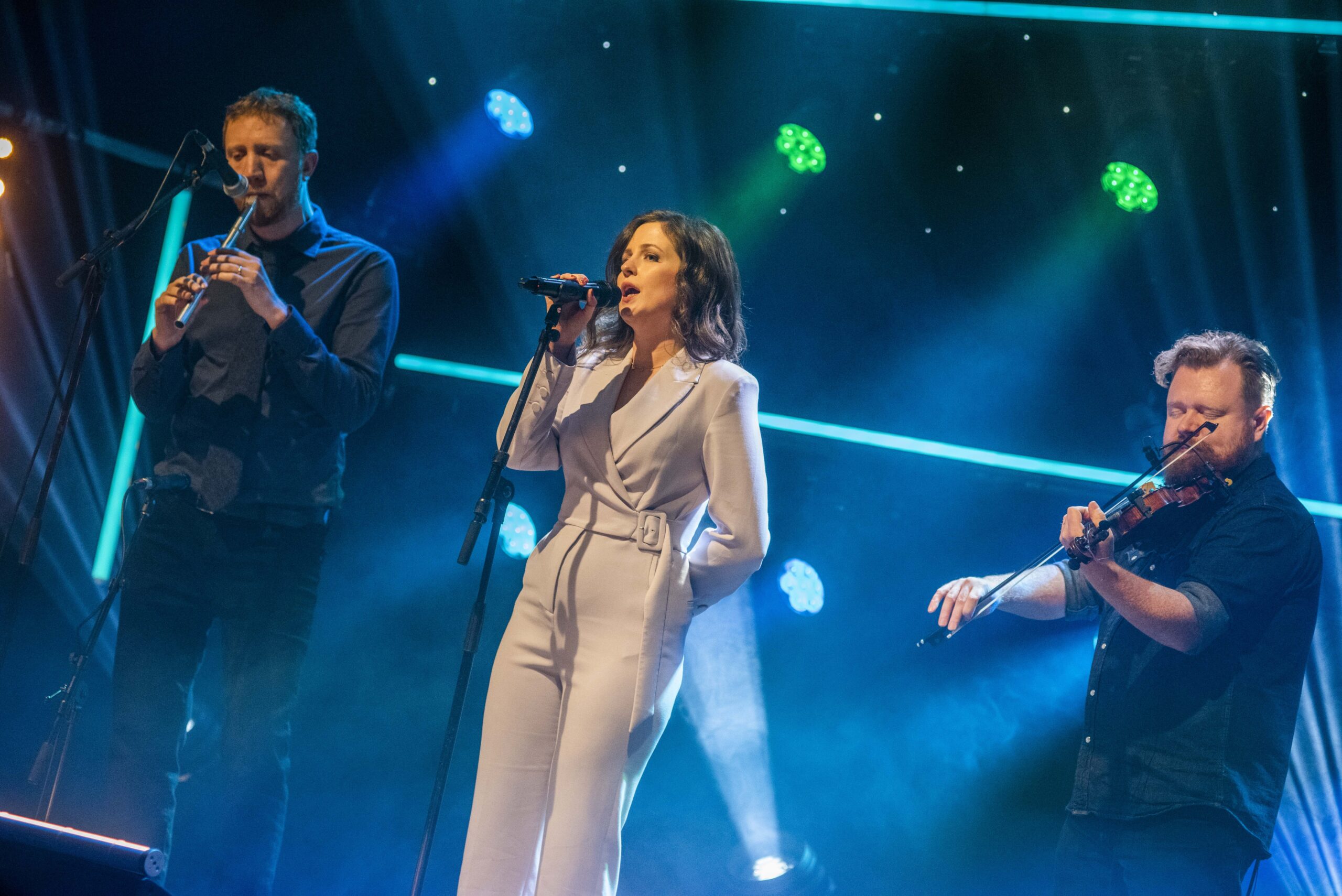 MG ALBA Scots Trad Music Awards announced 2021’s diverse Award Winners after a record 180,000 public votes, as it returned to Glasgow on BBC ALBA and in front of a live studio audience.
MG ALBA Scots Trad Music Awards announced 2021’s diverse Award Winners after a record 180,000 public votes, as it returned to Glasgow on BBC ALBA and in front of a live studio audience.
The stellar MG ALBA Scots Trad Music Awards annual Gala evening champions top Scottish traditional musicians of all genres in a glittering ceremony, recognising, and celebrating the wealth of talent via phenomenal performances, which this year took place at Glasgow’s Engine Works, and was broadcast on BBC ALBA at 9.00pm, Saturday December 4th, 2021, and streamed live around the world from www.bbc.co.uk/alba
With live music and event restrictions in place since lockdown began, Hands Up for Trad has been working hard since March 2020 to support artists and provide alternative platforms for musicians to reach their audiences, fundraise and sell tickets online.
Continuing their long-term partnership with MG ALBA to broadcast the Awards live in 2021 in front of a small audience of nominees due to Covid-19 regulations, bringing everything live into people’s homes remains a huge part of the annual event.
Margaret Cameron, Commissioning Editor and Head of Creative Collaborations said: “Congratulations to all of tonight’s winners – every year, it’s an absolute pleasure to see the amazing wealth of talent coming up through the ranks and gaining recognition for their creativity and commitment to the Scottish traditional music scene. MG ALBA is proud to continue to support these artists, who have been put to the test over the past 18 months, and to help acknowledge the most innovative and exciting ways they contribute to the trad music scene.”
The winners of the twelve MG ALBA Scots Trad Music Awards 2021 are:
Original Work of the Year sponsored by PRS for Music
Calum MacPhail – 7 Years Old
Community Project of the Year sponsored by Greentrax Recordings
Riddell Fiddles’ Two Towns Housing Estate Youth Musical Outreach Programme
Event of the Year sponsored by VisitScotland
Celtic Connections
Gaelic Singer of the Year sponsored by The Highland Society of London
Kim Carnie
Musician of the Year sponsored by The University of the Highlands and Islands
Iona Fyfe
Online Performance of 2021 sponsored by Gordon Duncan Memorial Trust
Norrie “Tago” MacIver Live Streams
Citty Finlayson Scots Singer of the Year sponsored by Traditional Music and Song Association
Ellie Beaton
Trad Video of the Year sponsored by Threads of Sound
Doddies Dream – Bruce MacGregor
Trad Music in the Media sponsored by Sabhal Mòr Ostaig
Ceòl is Cràdh (Mental health in musicians’ documentary) (BBC ALBA)
Up and Coming Artist of the Year sponsored by Royal Conservatoire of Scotland
The Canny Band
Music Tutor of the Year Award sponsored by Creative Scotland’s Youth Music Initiative
Craig Muirhead, Director of Piping and Drumming at Strathallan School
Album of the Year sponsored by Birnam CD
Where the World Is Thin by Kris Drever
Organising body, Hands Up for Trad funded by The National Lottery through Creative Scotland, was formed in 2002 and exists to increase the profile and visibility of Scottish traditional music through information, advocacy and education to artists, participants and audiences.
Hands Up for Trad’s Creative Director Simon Thoumire said: “I am so thankful to everyone who voted and came out to support our musicians and cultural scene to bring the atmosphere and the 2021 MG ALBA Scots Trad Music Awards into living rooms this year. It’s inspiring and an honour to work with so many determined and creative people and organisations who have continued to find ways to shine a light through such an unprecedented time.”
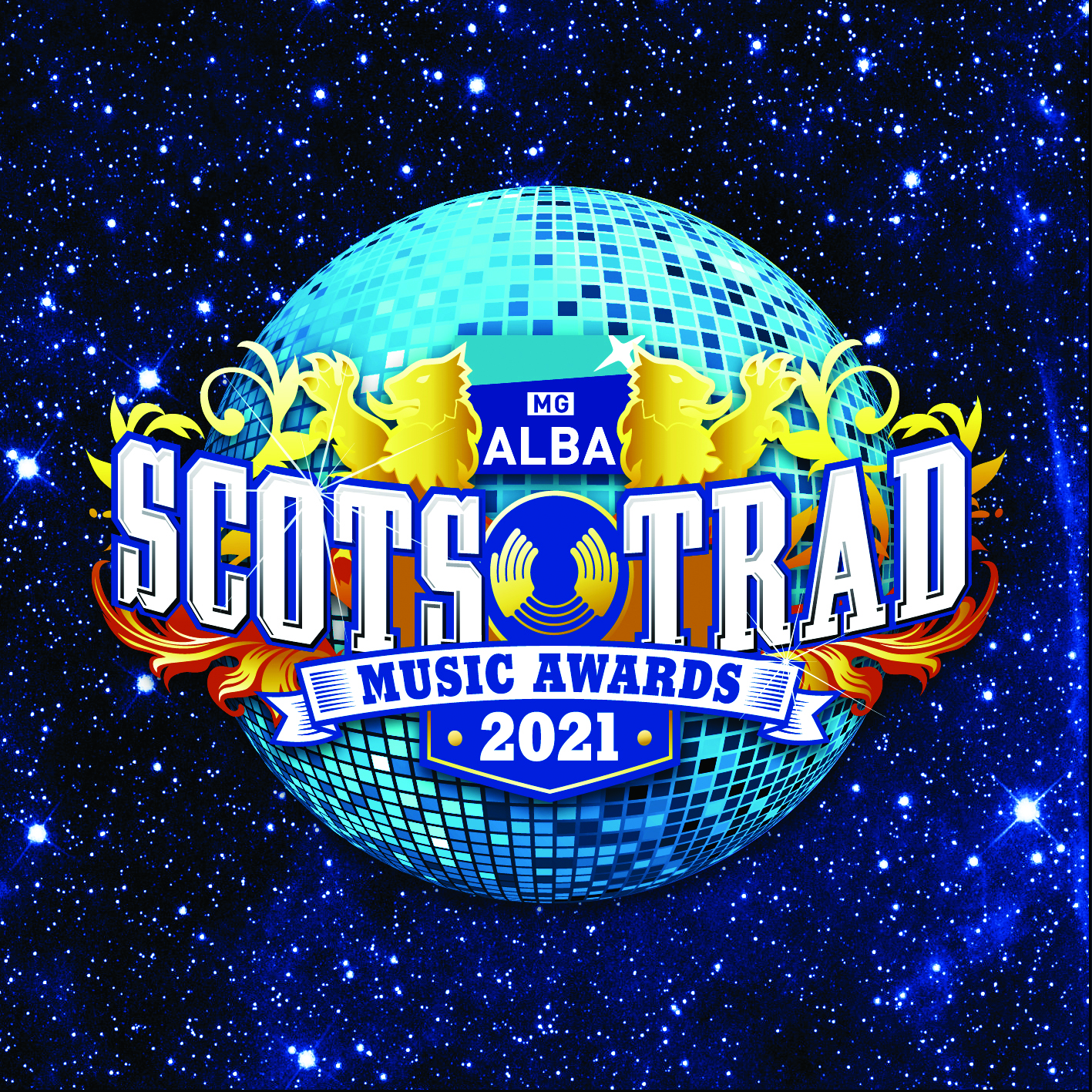 Showcasing the very best of Scottish traditional music, the MG ALBA Scots Trad Music Awards will be broadcast live on BBC ALBA this weekend.
Showcasing the very best of Scottish traditional music, the MG ALBA Scots Trad Music Awards will be broadcast live on BBC ALBA this weekend.
Presented by Mary Ann Kennedy and Alistair Heather, the awards on the evening of Saturday 4th December will be presented tri-lingually (Gaelic, Scots and English) to celebrate the linguistically diverse culture of the Scottish traditional music community.
Supported by Creative Scotland, the evening will feature phenomenal performances from the best in the business, such as west highland Gaelic folk band Dàimh and Kim Carnie to compliment the awarding of these prestigious honours, Na Trads 2021 should not be missed.
This year, the celebration is being broadcast from the Engine Works, Glasgow, and features performances from some of traditional music’s top luminaries, including Hannah Rarity, the Strathspey Band, Ìmar, the Canny Band & the Lomond Ceilidh Band.
Acclaimed Gaelic singer Mary Ann Kennedy, who herself won the Gaelic Singer of the Year award in 2019, is a stalwart of Na Trads having presented the show since the first broadcast on BBC ALBA in 2008.
Writer and broadcaster Alistair Heather, is a strong advocate for the Scots language and also hosts the annual Scots Language Awards.
Iseabail Mactaggart, Director of Multi-platform Content at MG ALBA said, “We always love being able to show our appreciation for the incredible wealth of talent we have in the world of Scottish traditional music, and there are few nights better than the Trads for doing just that. We are aware of how challenging things have been for musicians since the beginning of the pandemic, and so ensuring their achievements are recognised, celebrated and brought to audiences at home is really important as BBC ALBA continues to platform and support the best of Scottish traditional music.”
Director & Founder of Hands Up For Trad Simon Thoumire said: “I’m completely thrilled that throughout the huge challenges Covid-19 has brought to our Scots Trad music industry & cultural economy Hands Up for Trad has been able to adapt, continue and develop our valuable partnership with MG ALBA for all the artists and crew.
“Broadcasting and creating content airing from 9pm on BBC ALBA this Saturday 4th live into audiences homes from the 2021 MG ALBA Scots Trad Music Awards means the world to the talent, sponsors & everyone involved.”
Watch Na Trads 2021: MG ALBA Scots Trad Music Awards on BBC ALBA or on the BBC iPlayer, 9pm Saturday 4 December.
There will also be a worldwide stream available at https://www.bbc.co.uk/alba
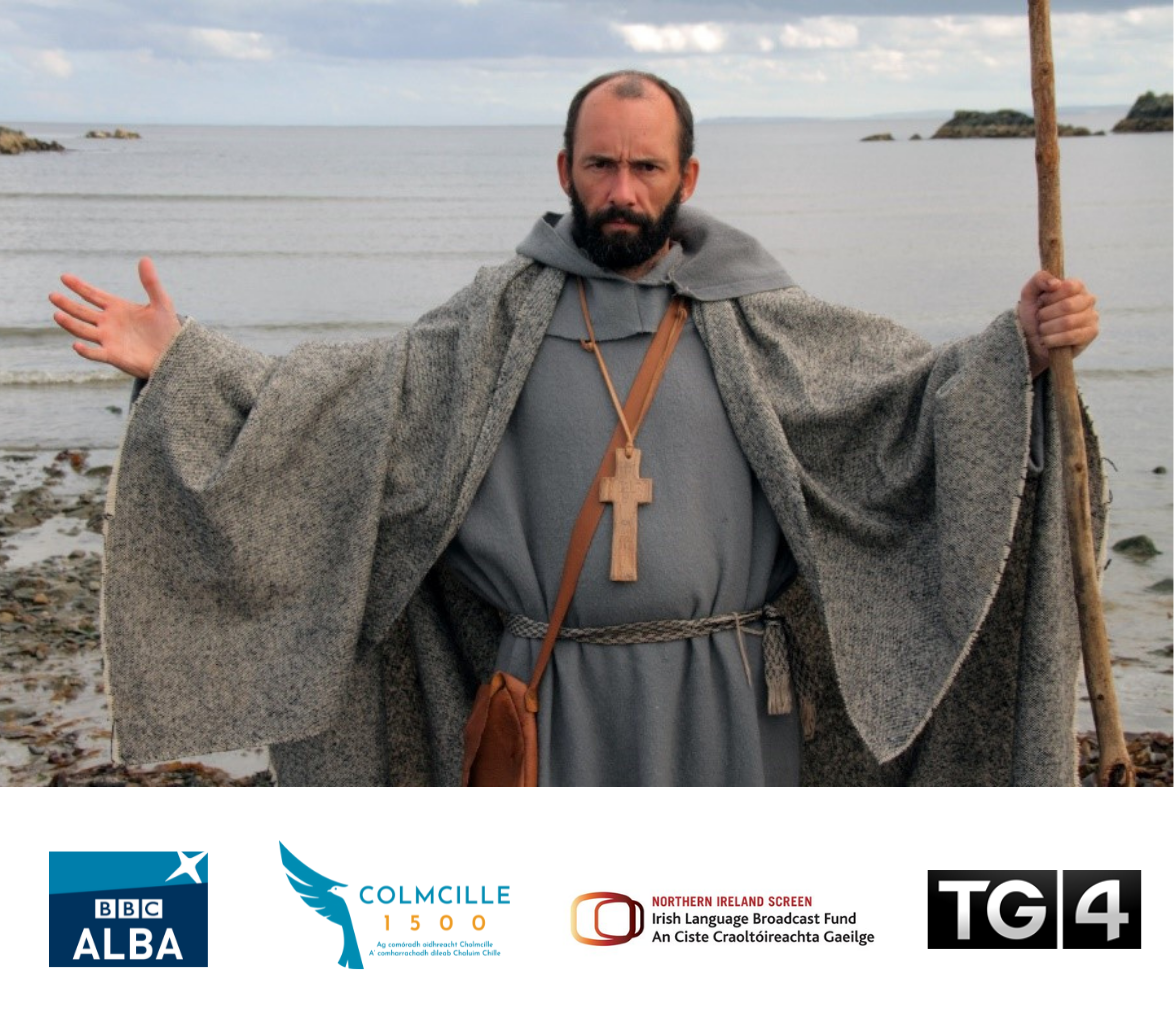 Warrior, poet, holy man: the revealing life story of one of Ireland and Scotland’s most important saints is told in a new documentary celebrating 1500 years since the birth of Calum Cille: An Naomh Dàna | Columba: The Bold Saint
Warrior, poet, holy man: the revealing life story of one of Ireland and Scotland’s most important saints is told in a new documentary celebrating 1500 years since the birth of Calum Cille: An Naomh Dàna | Columba: The Bold Saint
Broadcasting simultaneously on BBC ALBA and TG4 on December 7th to celebrate the 1500th anniversary of the Irish and Scottish saint’s birth, this documentary echoes his very own pilgrimage taken all those years ago.
Though known by many as the Dove of Peace, he was at the centre of bloody battles, before founding a monastery on Iona, laying the foundations for the island to become a beacon of civilization in the Early Middle Ages – he’s even said to have taken on the Loch Ness Monster!
Viewers will journey from Donegal to Iona, uncovering the truths behind the myths surrounding the troublemaker, copyright infringer, warrior and exile, who came to be one of the most revered individuals in Scottish and Irish history, as well as gaining international renown over the centuries.
Dramatic reconstruction is interwoven with expert accounts as we rediscover the achievements of this most uncompromising of saints.
Calum Cille – An Naomh Dàna is produced by Abú Media and MacTV with funding from Northern Ireland’s Screen’s Irish Language Broadcast Fund, TG4 and MG ALBA.
The documentary will air simultaneously on Tuesday 7 December at 9.30pm on BBC ALBA and TG4, and will be available on the BBC iPlayer within the UK for up to 30 days after broadcast.
In Calum Cille: An Naomh Dàna we hear from Dr Duncan Sneddon, from the University of Edinburgh.
On St Columba’s legacy, Dr Sneddon said: “There’s a difference between Columba the man who lived on Earth and the historical figure who was recreated in the generations after his death – and they all create their own Columba. But they all tell us something important. They all put together a Columba who was powerful, brave and important in different ways.”
Dr Niamh Wycherley, Dept of Early Irish, Maynooth University, says in the programme: “Arguably Colmcille’s most important and lasting legacy is the great swathe of ecclesiastical foundations that he established across Ireland and parts of western, now, Scotland. Iona of course was his primary foundation, the one he’s most rightly famous for. However he also founded other major ecclesiastical institutions – Kells and Durrow. These primary foundations of Colmcille produced some of our most precious and famous historical artefacts – the Book of Kells, The Book of Durrow, early collections of the Irish Annals. These are incredibly important texts in their own right, but also physical objects.”
Margaret Cameron Commissioning Editor & Head of Creative Collaborations BBC ALBA said: “This programme was a very natural fit for co-production and we’re delighted to see this production and broadcast collaboration result in high quality content for the BBC ALBA audience. Cultural ties between Ireland and Scotland have always been strong and BBC ALBA wanted to commission this documentary to mark 1500 years since the birth of Calum Cille and to reflect on our linguistic and cultural bonds in a very creative way.”
Alan Esslemont Director General of TG4 said “Addressing the Scottish Parliament in 2016, President Michael D. Higgins reflected on the relationship between Ireland and Scotland, “given our shared and complex history, it has often been difficult to say where the Irish ends and where what is Scottish begins. Or the other way round.” Colm Cille, warrior-cleric-politician, was in the vanguard of what was consciously the Irish colonisation and plantation of Scotland, spreading Irish Christianity throughout Scotland and using the names for Ireland, Éire, Fódhla, Banbha, Ealg to symbolically stake out Irish ownership of key places in Scotland, Strathearn (the Valley of Ireland), Glenelg (the Glen of Ireland) Atholl (New Ireland), Banff (Ireland) and Elgin (Little Ireland). I am delighted, to mark the 1500th anniversary of his birth, that TG4 and our Scottish sister channel, BBC ALBA, are bringing a fresh and compelling documentary to screens in both of our countries on the life of this most obstinate, avant-gardist, bold and influential Gael who permanently changed both Ireland and Scotland.”
Chief Executive of Northern Ireland Screen’s Irish Language Broadcast Fund Áine Walsh said “Colmcille is recognised as an Irish saint and a Scottish saint and has left his mark on the folklore and landscape of both countries and as a result the Irish Language Broadcast Fund was delighted that this project came before us and to commemorate 1500 years after the saint’s birth. Not only did it provide an opportunity to explore the life of the bold saint, but it also provided another opportunity to strengthen the links between Ireland and Scotland on a significant programme which will be broadcast on TG4 and BBC ALBA. Partnerships like this are very important in our efforts to deliver engaging and high-quality content, and this programme certainly meets that criterion.”